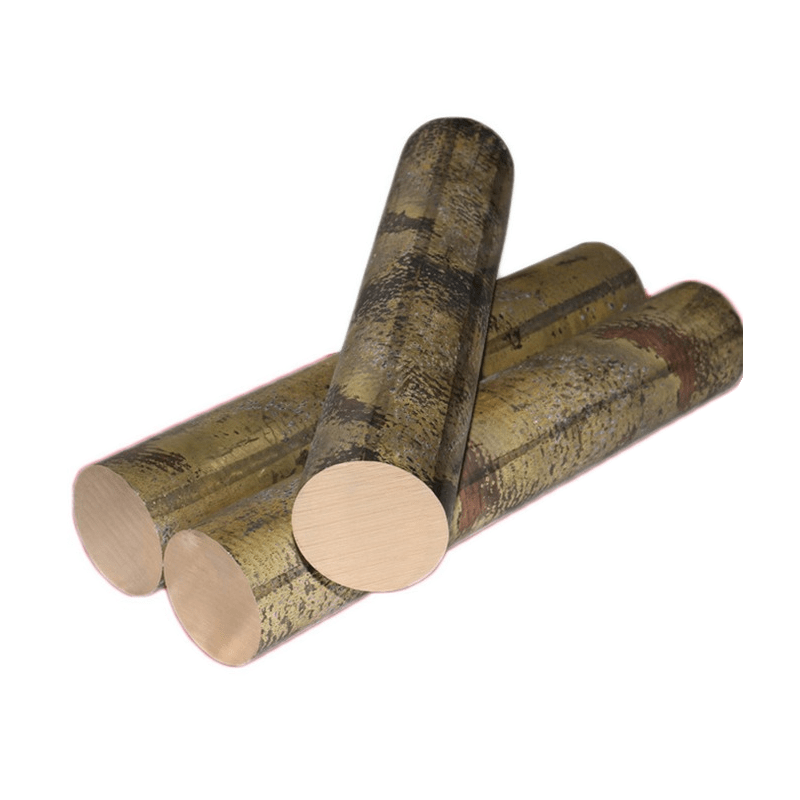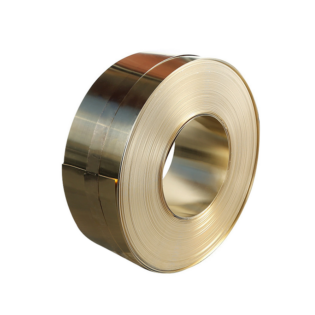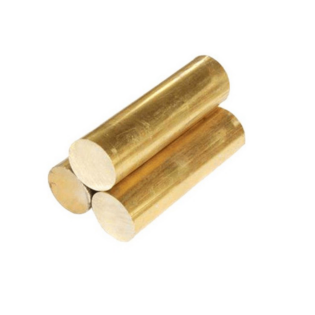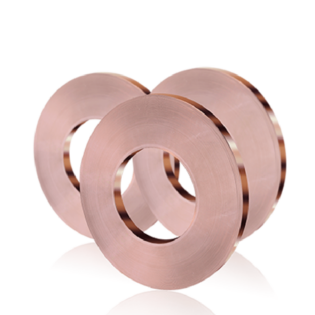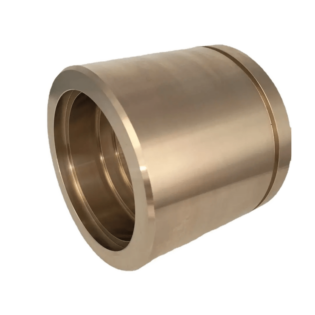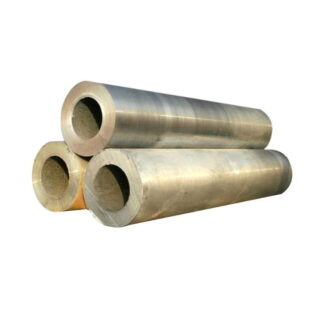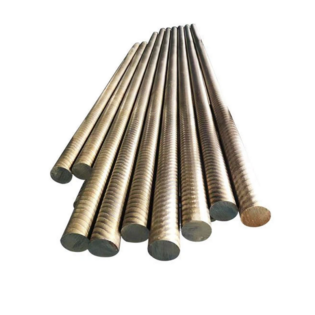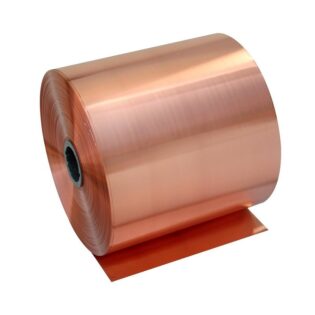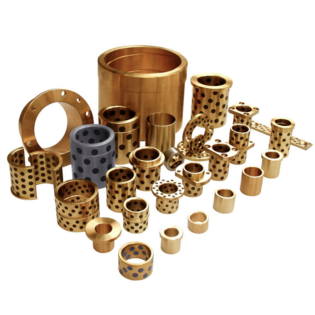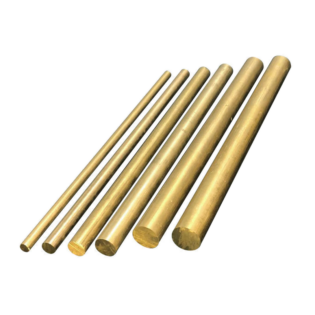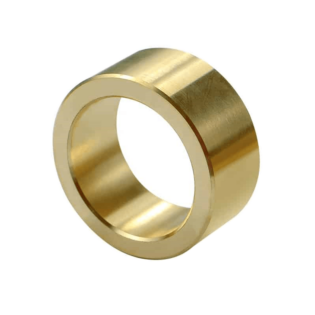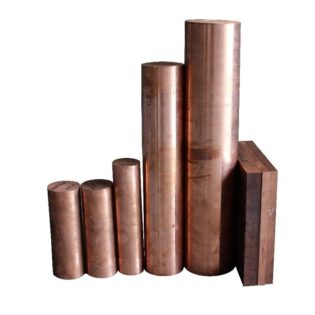C62400
Product description: Aluminum bronze 11%
Tempers: HR50 drawn and stress relieved
Solids: 1/2″ to 3″ O.D.*
Standard lengths: 144″
*Consult mill for other sizes
Typical uses
Fasteners: nuts
Industrial: bushings, cams, drift pins, gears, hydraulic bushings, support bushings, tie rods, valve balls, wear plates, welding wire
Introduction to C62400 alloy:
C62400 aluminum bronze alloy belongs to the aluminum bronze series and is mainly composed of copper (Cu), aluminum (Al), lead (Pb) and other elements. The addition of aluminum can increase the strength, hardness and corrosion resistance of the alloy, while the addition of lead can improve the lubrication properties of the alloy. C62400 alloy has high strength and hardness, as well as good corrosion resistance and wear properties.
C62400 performance features:
– Mechanical properties: C62400 alloy has high tensile strength, yield strength and elongation.
C62400 aluminum bronze alloy is a common copper alloy with good mechanical properties, corrosion resistance and wear properties. It is widely used in the fields of shipbuilding, marine engineering, chemical equipment and automobile industry. It has good processing performance and can be formed by cold working and hot working. Heat treatment can further increase the strength and hardness of the alloy.
Similar or equivalent specification
| CDA | ASTM | SAE | AMS | Federal | Military | Other |
|---|---|---|---|---|---|---|
| C62400 | B150 B150M | J461 J463 |
Chemical composition
| Cu%1 | Sn% | Fe% | Al% | Mn% | Si% | ||||||
|---|---|---|---|---|---|---|---|---|---|---|---|
Chemical composition according to ASTM B150/B150M-19 1Cu value includes Ag. Note: Cu + sum of named elements, 99.5% min. Single values represent maximums. | |||||||||||
| Rem. | 0.20 | 2.00- 4.50 | 10.00- 11.50 | 0.30 | 0.25 | ||||||
Machinability
| Copper alloy UNS No. | Machinability rating | Density (lb/in3 at 68 °F) |
|---|---|---|
| C62400 | 50 | 0.269 |
Mechanical properties
C62400
HR50 drawn and stress relieved Temper
Size range: 1/2″ and under rod
| Tensile strength, min | Yield strength, at 0.5% extension under load,, min | Elongation, in 4x Diameter or Specimen Thickness, min | Rockwell “B” hardness | Remarks | ||
|---|---|---|---|---|---|---|
| ksi | MPa | ksi | MPa | % | min to max HRB | |
| 95 | 655 | 45 | 310 | 10 | ||
Size range: over 1/2″ to 1″ rod inclusive
| Tensile strength, min | Yield strength, at 0.5% extension under load,, min | Elongation, in 4x Diameter or Specimen Thickness, min | Rockwell “B” hardness | Remarks | ||
|---|---|---|---|---|---|---|
| ksi | MPa | ksi | MPa | % | min to max HRB | |
| 95 | 655 | 45 | 310 | 12 | ||
Size range: over 1″ to 2″ rod inclusive
| Tensile strength, min | Yield strength, at 0.5% extension under load,, min | Elongation, in 4x Diameter or Specimen Thickness, min | Rockwell “B” hardness | Remarks | ||
|---|---|---|---|---|---|---|
| ksi | MPa | ksi | MPa | % | min to max HRB | |
| 90 | 620 | 43 | 295 | 12 | ||
Size range: over 2″ to 3″ rod inclusive
| Tensile strength, min | Yield strength, at 0.5% extension under load,, min | Elongation, in 4x Diameter or Specimen Thickness, min | Rockwell “B” hardness | Remarks | ||
|---|---|---|---|---|---|---|
| ksi | MPa | ksi | MPa | % | min to max HRB | |
| 90 | 620 | 40 | 275 | 12 | ||
Physical properties
Physical properties provided by CDA | |||||||||||
| US Customary | Metric | ||||||||||
|---|---|---|---|---|---|---|---|---|---|---|---|
| Melting point – liquidus | 1900 °F | 1038 °C | |||||||||
| Melting point – solidus | 1880 °F | 1027 °C | |||||||||
| Density | 0.269 lb/in3 at 68 °F | 7.45 gm/cm3 at 20 °C | |||||||||
| Specific gravity | 7.45 | 7.45 | |||||||||
| Electrical conductivity | 12% IACS at 68 °F | 0.07 MegaSiemens/cm at 20 °C | |||||||||
| Thermal conductivity | 34 Btu/sq ft/ft hr/°F at 68 °F | 59 W/m at 20 °C | |||||||||
| Coefficient of thermal expansion 68-572 | 9 · 10-6 per °F (68-572 °F) | 15.6 · 10-6 per °C (20-300 °C) | |||||||||
| Specific heat capacity | 0.09 Btu/lb/°F at 68 °F | 377.1 J/kg at 20 °C | |||||||||
| Modulus of elasticity in tension | 17000 ksi | 117212 MPa | |||||||||
| Modulus of rigidity | 6400 ksi | 44127 MPa | |||||||||
Fabrication properties
Fabrication properties provided by CDA | |||||||||||
| Technique | Suitability | ||||||||||
|---|---|---|---|---|---|---|---|---|---|---|---|
| Soldering | Not recommended | ||||||||||
| Brazing | Fair | ||||||||||
| Oxyacetylene welding | Not recommended | ||||||||||
| Gas shielded arc welding | Good | ||||||||||
| Coated metal arc welding | Good | ||||||||||
| Spot weld | Good | ||||||||||
| Seam weld | Good | ||||||||||
| Butt weld | Good | ||||||||||
| Capacity for being cold worked | Poor | ||||||||||
| Capacity for being hot formed | Excellent | ||||||||||
| Forgeability Rating | 80 | ||||||||||
| Machinability rating | 50 | ||||||||||
Thermal properties
Thermal properties provided by CDA *Temperature is measured in Fahrenheit. | |||||||||||
| Treatment | Minimum* | Maximum* | |||||||||
|---|---|---|---|---|---|---|---|---|---|---|---|
| Annealing | 1100 | 1200 | |||||||||
| Hot treatment | 1400 | 1625 | |||||||||
Common fabrication processes
Hot bending, hot forging
Common fabrication processes provided by CDA
